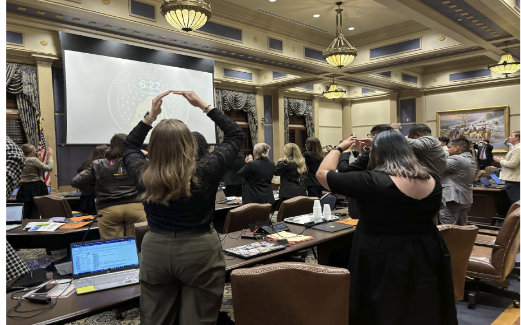By: Journalist Sydney White (SE)

The bill aimed to fix sex education taught to K-12 students in Oklahoma.
Rep. Rebekah Williams (NWOSU) gave an opt-out option for those who don’t believe in the state’s sexual education. Rep. Williams also left it up to the school to better accommodate situational standards for different schools from a wide range of backgrounds and environments.
Interviewing Rep. Williams:
What was your inspiration for this bill? As a practicing catholic, Rep. Williams didn’t gain a lot of access to these topics. Although she didn’t receive sexual education at her private school, Williams said her public school friends were exposed to dangerous things at an early age with little education on the subject.
“My goal is to create a safe space for students where there is no shame in asking questions,” Williams said.
In section 3, subsection 2A, the bill mentions the different subjects that shall be in accordance with what’s appropriate for each grade.
Who enforces that? The school district was her intended purpose. This was to be vague so that schools could create different standards that they could mold to meet the goal of specific sexual education. It would be more than what is currently available to most schools. She brought up an example in which older students become mentors in the subjects and teach children in that way.
“Studies have shown that actually, that method was more effective,” Rep. Williams said.
What makes your sex education bill different then others? O.I.L. hears a lot of bills regarding reforming our sex education in K-12. Her bill offered a fresh perspective with the freedom she allocated to schools. Many legislative pieces in O.I.L. lay out specific requirements and content to cover sexual education, whereas Rep. William’s bill allowed schools to cover sexual education that meets each school district’s standards.
What knowledge and research have led you to write this bill? The author said she did her research and found this was a way to compromise with people who don’t want to have the state involved in their kid’s sexual education.
